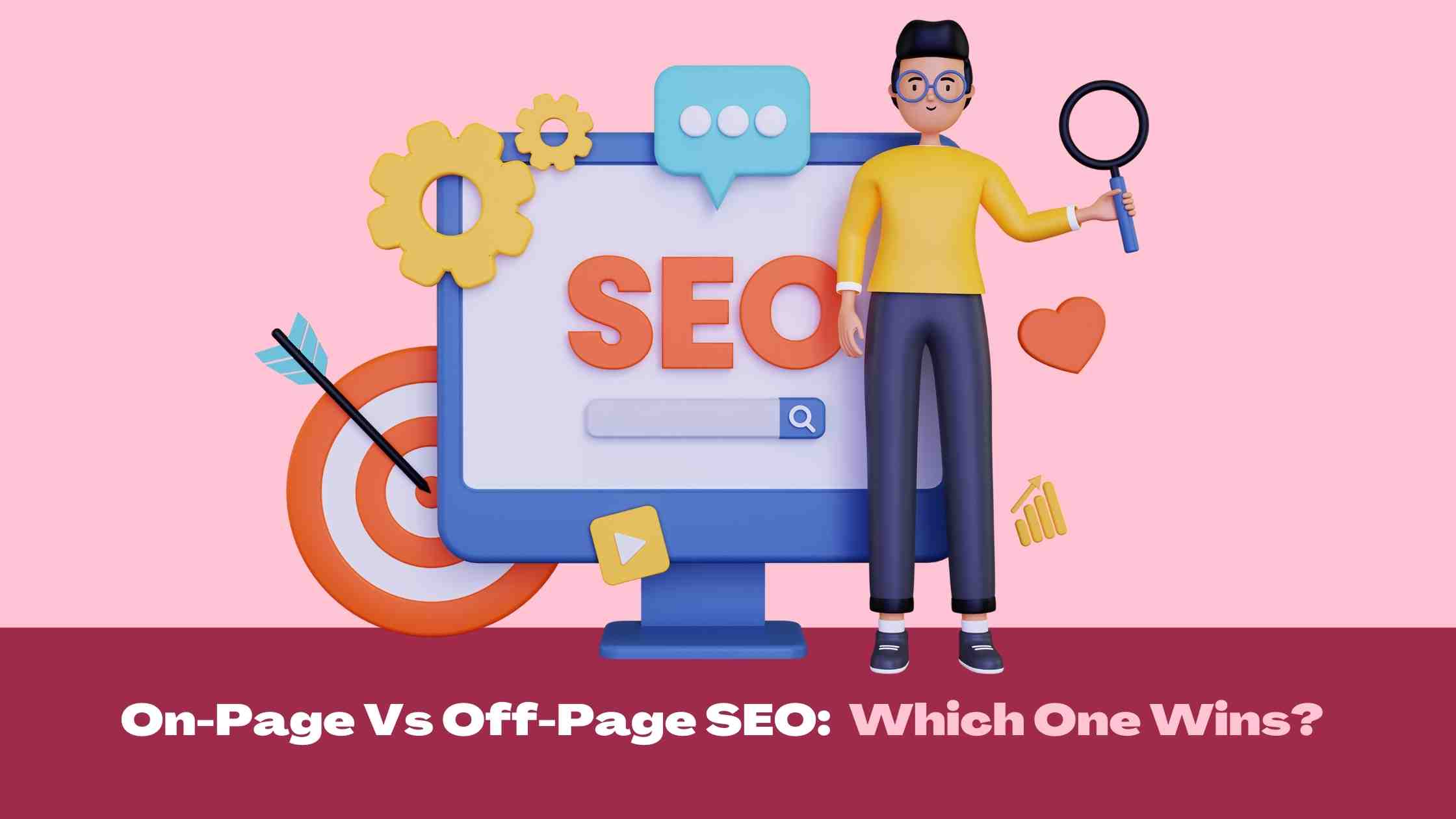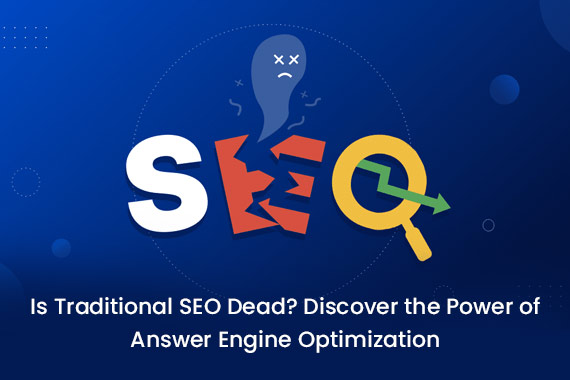On-Page Vs Off-Page SEO: Which One Wins?

On-Page SEO and Off-Page SEO are two essential components of search engine optimization (SEO) to improve a website’s visibility and rankings on search engine result pages (SERPs). They involve different strategies and techniques to optimize a website and increase its chances of being found by search engines and users.
The distinction between on-page and off-page SEO is that they target two sets of SEO criteria. The first focuses on changing SEO elements on a page, and the latter focuses on aspects outside of a page. As the best provider of SEO services in India and worldwide, we thought it essential to cover the on-page and off-page SEO. So let’s begin.
Table of Contents
1. What Exactly is On-page SEO?
On-page SEO (also known as on-site SEO) is optimizing web pages for them to rank higher in search engines. It provides improvements to both the visible content and the HTML source code.
2. What is Meant By Off-Page SEO?
On the other hand, Off-Page SEO refers to optimization efforts outside the website, intending to improve its authority, reputation, and visibility across the internet.
3. What elements influence on-page SEO?
In this part, we’ll go over some of the most crucial things you should remember to rank higher on SERPs (search engine results pages) and get more hits on your content.
3.1 Search Intent
The reason for the search is referred to as search purpose. Being the best SEO company in India and worldwide, we understand it is one of the most crucial ranking variables.
Search intent in SEO determines what searchers want to acquire when they enter a search query and then supplies that information.
The most significant component of on-page SEO is search intent. After all, search engines must always provide relevant and valuable information to users.
To optimize your content for search intent, examine the search result pages for a specific query and discover the three Cs of search intent:
Content type – What is the most prevalent sort of content? Is it a blog article, a product page, a video, or another type of content?
Content format – This might include how-to instructions, list postings, reviews, comparisons, etc.
Content angle – The content piece’s distinctive selling pitch, such as “best,” “cheapest,” or “for beginners.”
Once you’ve identified the three Cs of search intent, you should have a solid sense of what kind of material Google “recommends” to its users for specific search queries.
3.2 Content Quality
Search intent is essential, but using it alone will not produce “useful and compelling content.” You must also consider the quality of your article. Google says the following about what it searches for in content:
In its algorithms, Google appears to want to include the same qualities that readers value in any piece of content. And according to Google, it is content:
- Simple to read.
- Laid out.
- Fresh.
- Unique.
- In accordance with E-E-A-T principles.
- Dedicated to giving critical information to help a searcher solve a problem.
In practice, you must also generate better content than your competitors.
3.3 URLs
URLs are only a minor ranking influence. They have such little weight on website ranking that Google’s John Mueller has stated that they are overrated in SEO and that people should not be concerned about them.
However, URLs are included in Google’s SEO recommendations as something you should optimize. However, you should do it for the user’s benefit, not Google’s.
This is because the user sees the URL in the address bar and the SERPs. Based on that information, visitors may a) select to click on some results over others and b) know where they are on the page.
3.4 Page Title
Another minor ranking component is page titles. Google utilizes them to better match the purpose behind a particular search query by understanding what your website is about.
Naturally, search engines utilize page titles for the same reason: to grasp what to expect from a page. So, to “satisfy” all parties, consider the following recommended practices:
Make the title memorable and accurate – Write a phrase that piques consumers’ curiosity while correctly describing what makes your service unique.
Insert the desired keyword into your title, but keep it natural.
Fit your description under 60 characters – Otherwise, it will be shortened, and Google will rewrite your title.
4. Off-Page SEO & Some Techniques
Off-Page SEO techniques focus on activities outside the website to improve its authority, reputation, and visibility across the internet. Being an experienced SEO company in India and worldwide, we use these techniques to enhance the website’s online presence, increase the number of high-quality backlinks, and boost its credibility in the eyes of search engines. Here are some essential Off-Page SEO techniques:
4.1 Link Building
Building high-quality and relevant backlinks from authoritative websites is one of the most crucial Off-Page SEO techniques. The more reputable sites link back to your website, the higher its authority and search engine rankings. Some ways to earn backlinks include guest blogging, creating shareable content, and reaching out to relevant websites for link opportunities.
4.2 Social Media Marketing
Active participation in various social media platforms is essential for Off-Page SEO. Engage with your audience, share valuable content, and build a strong social media presence. Social signals like likes, shares, and comments can indirectly impact search engine rankings.
Social Bookmarking
Submitting website pages or blog posts to popular social bookmarking sites like Reddit, Digg, or StumbleUpon can help attract traffic to your site and improve its visibility.
4.3 Content Marketing
Creating valuable and shareable content, such as blog posts, infographics, videos, and guides, can attract natural backlinks from other sites and social media platforms.
4.4 Q & A Platforms
Participate in Q&A platforms like Quora and Stack Exchange, answering questions related to your niche or industry with helpful information and including links to relevant resources on your website.
5. Which is More Important? One Page Vs. Off-Page SEO
Off-page and on-page SEO services are both essential for enhancing your page rankings. It’s similar to constructing a house. Off-page SEO is the superstructure, whereas on-page SEO is the foundation. No matter how good your off-page SEO efforts are, your home will only stay intact if your on-page SEO is stable. Therefore, you need both for a sound SEO strategy.
Conclusion
Matebiz drives organic traffic for clients by integrating Page & off-page SEO services in India and worldwide, increases search engine rankings, builds brand authority, and achieves maximum results for our clients. Additionally, continuous monitoring, analysis, and adaptation to search engine algorithm changes are crucial to staying ahead in the dynamic world of SEO. We at Matebiz keep each of these elements in mind.
FACT TIME!
Did you know that 53% of US consumers say they use a search engine to research products before deciding whether or not to buy?

Somisetty Harish
I worked with MATEBIZ website designers they are brilliant at the pace they work and completely satisfied with their work to improve my website user interface the best part is that their pricing is very affordable which makes them approachable. I genuinely suggest MATEBIZ.
Recent Blogs
-
 Tips to Write Blogs that Attract Visitors and Increase Visibility
Tips to Write Blogs that Attract Visitors and Increase Visibility
-
 IT Outsourcing: What Are The Main Benefits for Your Company?
IT Outsourcing: What Are The Main Benefits for Your Company?
-
 Is Traditional SEO Dead? Discover the Power of Answer Engine Optimization
Is Traditional SEO Dead? Discover the Power of Answer Engine Optimization
-
 How a CRM Management System Can Improve HR Operations in 2025
How a CRM Management System Can Improve HR Operations in 2025
-
 Top 10 Services You Can Outsource to an IT Company India
Top 10 Services You Can Outsource to an IT Company India


